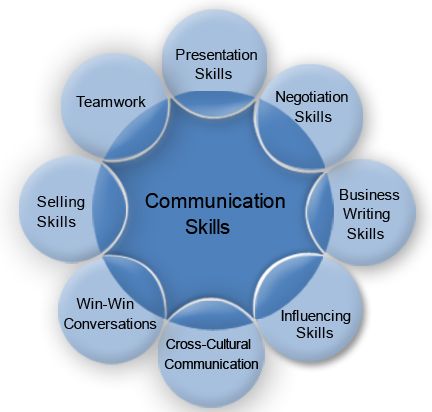How to Practice Communication Skills Alone?
To practice communication skills alone, you can practice in front of a mirror, which allows you to observe your body language and gain a new perspective on your delivery. This technique helps you become more aware of how your audience will perceive your speech and can enhance your overall communication skills.
It’s a convenient and effective way to improve your communication abilities without the need for a partner or group setting. By practicing in front of a mirror, you can fine-tune your nonverbal cues, such as facial expressions and gestures, and make adjustments as needed.
It also gives you the opportunity to work on your speech delivery, clarity, and confidence. This self-directed practice method allows you to focus solely on your own communication skills and make improvements at your own pace. So, if you’re looking to enhance your communication abilities, practicing in front of a mirror is a useful solo technique.
Analyzing And Learning From Ted Talks
Practice communication skills alone by analyzing and learning from TED Talks. Watch and study different speakers’ techniques, take notes on their delivery and body language, and apply those lessons to your own practice sessions. It’s a valuable way to improve your communication skills independently.
Importance Of Analyzing Ted Talks:
- Analyzing Ted Talks is a valuable tool for practicing communication skills alone because it allows you to learn from successful speakers and gain insights into effective communication techniques.
- By analyzing Ted Talks, you can observe how speakers engage their audience, structure their content, and deliver their message with confidence and clarity.
- Understanding the importance of analyzing Ted Talks can help you improve your own communication skills and become a more effective speaker.
How To Effectively Analyze A Ted Talk:
- Watch the Ted Talk multiple times to fully grasp the speaker’s message and delivery.
- Pay attention to the speaker’s body language, gestures, and facial expressions, as they play a crucial role in effective communication.
- Take note of the speaker’s use of storytelling, humor, and visual aids to engage the audience and make the topic more relatable.
- Analyze the structure of the talk, including the introduction, main points, and conclusion, to understand how the speaker organizes their content.
- Identify any rhetorical devices or persuasive techniques used by the speaker to captivate the audience.
- Reflect on the speaker’s tone of voice, pace, and rhythm, and consider how it contributes to the overall impact of the talk.
- Analyzing the Ted Talk can help you incorporate successful communication strategies into your own practice sessions and improve your overall communication skills.
Learning From Successful Speakers:
- Study the techniques used by successful speakers in Ted Talks to learn from their expertise and apply it to your own communication practice.
- Pay attention to how successful speakers engage their audience from the beginning of their talk, whether through a compelling story, an intriguing question, or a thought-provoking statement.
- Notice how successful speakers maintain a clear and concise message, avoiding unnecessary jargon or complex language that may confuse the audience.
- Take note of the speaker’s ability to connect with the audience on an emotional level, whether through personal anecdotes, relatable examples, or inspiring stories.
- Consider the methods employed by successful speakers to address potential objections or counterarguments, demonstrating their ability to anticipate and respond effectively.
- Analyzing and learning from successful speakers in Ted Talks can provide you with valuable insights and inspiration for your own communication practice, helping you become a more confident and persuasive communicator.
Developing Your Own Talk
Practice communication skills alone by speaking in front of a mirror. This allows you to observe your body language and get a sense of how your audience perceives you. It’s a great way to improve your public speaking abilities at home.
The Benefits Of Writing And Structuring Your Own Talk:
- Writing and structuring your own talk can have several benefits:
- Helps you organize your thoughts and ideas in a coherent manner.
- Allows you to clarify your message and ensure it is impactful.
- Improves your communication skills by giving you practice in articulating your thoughts.
- Builds your confidence in public speaking as you become more familiar with your own content.
- Provides you with a framework to develop a compelling narrative.
Techniques For Organizing Your Thoughts And Ideas:
- Use the following techniques to organize your thoughts and ideas for your talk:
- Brainstorm: Jot down all the key points and ideas you want to cover in your talk.
- Categorize: Group related ideas together to create logical sections or themes.
- Create an Outline: Structure your talk by organizing the main points and supporting details.
- Use Visual Aids: Incorporate visual aids, such as charts or diagrams, to enhance understanding and engagement.
- Practice Transitions: Smoothly transition between different sections or ideas to maintain flow.
- Keep it Simple: Avoid overwhelming your audience with too much information. Focus on clarity and conciseness.
Crafting A Compelling Opening And Closing:
- The opening and closing of your talk are crucial for capturing and retaining your audience’s attention. Use these tips to craft compelling openings and closings:
- Grab Attention: Start with a catchy hook, such as a surprising fact or a thought-provoking question.
- State the Purpose: Clearly communicate the purpose of your talk and what your audience can expect to learn.
- Engage Emotionally: Appeal to your audience’s emotions through storytelling or personal anecdotes.
- Provide a Call to Action: Encourage your audience to take some action or think differently as a result of your talk.
- Recap Key Points: Summarize the main takeaways from your talk in the closing to reinforce your message.
- End with Impact: Leave your audience with a memorable closing statement or a call to action that inspires them.
Remember, practicing communication skills alone may not replicate the exact experience of speaking in front of an audience, but it can significantly enhance your abilities. By writing and structuring your own talk, organizing your thoughts effectively, and crafting compelling openings and closings, you can improve your communication skills and become a more confident speaker.
So, start practicing and enjoy the journey of self-improvement!
Objective Feedback And Self-Evaluation
Practice communication skills alone by using objective feedback and self-evaluation. Record yourself speaking or role-playing, then compare your recordings to identify areas for improvement. Utilize a mirror to observe your body language and gain a new perspective.
The Value Of Receiving Objective Feedback:
- Objective feedback provides an outside perspective on your communication skills, highlighting areas for improvement and identifying strengths.
- It helps you gain insights into your communication style, mannerisms, and delivery by receiving feedback from others.
- Objective feedback allows you to identify any gaps in your communication skills that may be hindering your effectiveness.
- It helps you understand how your message is perceived by others and provides an opportunity for self-reflection and growth.
- By receiving objective feedback, you can gain valuable insights into your communication strengths and weaknesses and work on improving them.
Effective Strategies For Self-Evaluation:
- Record yourself: Use a video or audio recording device to capture your communication efforts. This allows you to observe your body language, tone of voice, and delivery style.
- Review your recordings: Take the time to watch or listen to your recordings objectively. Pay attention to areas where you could improve, such as clarity, pacing, and overall effectiveness.
- Take notes: While reviewing your recordings, jot down specific areas where you excel and areas where you could enhance your communication skills.
- Reflect on your performance: After reviewing your recordings, take some time to reflect on your performance. Consider what worked well and what can be improved upon in future communication situations.
- Set concrete goals: Based on your self-evaluation, set specific goals for improving your communication skills. These goals should be measurable, attainable, and aligned with your overall objectives.
- Practice regularly: Consistent practice is key to honing your communication skills. Set aside dedicated time each day or week to practice various aspects of communication, such as public speaking, active listening, or conflict resolution.
Utilizing Feedback To Improve Communication Skills:
- Embrace constructive criticism: View feedback as an opportunity for growth rather than a personal attack. Be open-minded and receptive to suggestions for improvement.
- Analyze patterns: Look for recurring feedback themes or patterns that emerge from different sources. This will help you identify areas that require more focus and improvement.
- Prioritize areas for improvement: Once you have identified specific areas that need work, prioritize them based on their impact on your overall communication effectiveness.
- Seek additional resources: Explore books, articles, online courses, or workshops that can provide guidance and practical exercises to strengthen your communication skills.
- Practice active listening: Develop your ability to listen actively and empathetically to others. This will enhance your understanding and response during communication exchanges.
- Role-play scenarios: Engage in role-playing exercises to practice different communication scenarios and experiment with different approaches and styles.
- Monitor progress: Regularly assess your progress by seeking objective feedback from trusted individuals or through self-evaluation. Use this feedback to adapt and refine your communication skills.
Remember, practicing communication skills alone is not only possible but also an effective way to enhance your abilities. Utilize objective feedback and self-evaluation as valuable tools in your journey towards improved communication skills.
Recording And Comparing Yourself
One effective way to practice communication skills alone is by recording and comparing yourself. By recording your speeches or conversations, you can analyze your tone, body language, and delivery, and then compare it to how you want to communicate effectively.
This self-reflection can help you identify areas for improvement and refine your communication skills.
The Benefits Of Recording Your Speaking Practice:
- Recording your speaking practice allows you to listen to and analyze your own communication skills.
- It provides an opportunity to identify areas of improvement and track your progress over time.
- By listening to your recordings, you can gain a greater awareness of your vocal tone, clarity, and articulation.
- Recording yourself helps you become more comfortable with hearing your own voice, which can boost your confidence in public speaking.
- It allows you to observe your body language and nonverbal cues, helping you become more aware of how you present yourself to others.
How To Effectively Compare Your Recordings:
- Begin by making two or more recordings of your speaking practice.
- Find a quiet space where you can focus and listen to each recording without distractions.
- Take notes while listening to each recording, highlighting strengths and weaknesses in your communication skills.
- Pay attention to elements such as clarity, articulation, pacing, and overall message delivery.
- Compare your recordings side by side, noting any differences in your speech patterns, body language, or voice modulation.
- Look for areas where you can make improvements and identify specific techniques or skills you want to work on.
Identifying Areas For Improvement:
- Listen to your recordings with a critical ear, focusing on areas where your communication skills may be lacking.
- Pay attention to any patterns or recurring issues that you notice across multiple recordings.
- Take note of any specific vocal or speech habits that may need improvement, such as filler words, mumbling, or speaking too quickly.
- Analyze your body language and nonverbal cues, looking for ways to enhance your overall presence and impact.
- Seek feedback from others, sharing your recordings and asking for their input on areas where you can improve.
- Use the insights gained from your recordings to create a plan for targeted practice and skill development.
Remember, practicing communication skills alone can be a valuable way to enhance your speaking abilities. Recording and comparing yourself provides a unique opportunity for reflection, self-assessment, and growth. By identifying areas for improvement, you can take focused action to develop your communication skills and become a more effective and confident speaker.
Role Playing And Mirror Practice
Practice communication skills alone by incorporating role playing and mirror practice. Role playing allows you to simulate different scenarios and practice your communication skills, while mirror practice helps you observe your body language and presentation style. Both methods are effective for improving your communication skills independently.
The Advantages Of Role Playing In Communication Practice:
- Role playing allows you to simulate real-life communication scenarios and practice your responses in a safe environment.
- It helps you develop empathy and understanding for different perspectives, enhancing your ability to communicate effectively with others.
- Role playing enables you to experiment with different communication styles, allowing you to find the approach that works best for you.
- It builds your confidence in expressing yourself and articulating your thoughts and ideas.
- Through role play, you can develop your active listening skills by actively responding to the dialogue and cues given by your imaginary partner.
- Role playing strengthens your ability to think on your feet and respond to unexpected situations, improving your overall communication skills.
Techniques For Practicing In Front Of A Mirror:
- Prepare a speech or presentation and stand in front of a mirror while delivering it. This allows you to observe your body language, facial expressions, and gestures.
- Practice maintaining eye contact with yourself in the mirror. This helps improve your non-verbal communication skills and gives you confidence when interacting with others.
- Pay attention to your posture and body language. Practice maintaining an upright and open stance, which conveys confidence and attentiveness.
- Use the mirror to observe and refine your facial expressions. Practice smiling, nodding, and mirroring the expressions you want to convey during conversations.
- Practice articulating your words clearly and confidently. Use the mirror to observe your mouth movements and pronunciations.
- Experiment with different vocal tones and volumes to improve the effectiveness of your verbal communication.
- Record yourself speaking or delivering a presentation in front of the mirror. This allows you to review and analyze your communication skills objectively.
Building Confidence In Non-Verbal Communication:
- Focus on improving your body language by consciously displaying open, approachable postures. This involves keeping your arms uncrossed, maintaining eye contact, and facing the person you are communicating with.
- Practice mirroring the body language of others. This technique can help establish rapport and create a sense of connection during conversations.
- Pay attention to your facial expressions and practice conveying positive emotions such as empathy, interest, and enthusiasm.
- Experiment with using gestures to support your verbal communication. Practice using appropriate hand movements to emphasize key points or to convey specific meanings.
- Observe and analyze how others use non-verbal cues effectively in their communication. Take note of their body language, facial expressions, and gestures, and incorporate them into your own communication style.
- Practice active listening by nodding, maintaining eye contact, and using verbal cues to show that you are fully engaged in the conversation.
- Remember that building confidence in non-verbal communication takes time and practice. Be patient with yourself and continue to refine your skills.
Listening To Audio Books And Speeches
Practice communication skills alone by listening to audio books and speeches. This allows you to improve your speaking abilities, learn from effective communicators, and develop your own style and delivery.
The Role Of Listening In Improving Communication Skills:
- Listening plays a crucial role in improving communication skills as it allows individuals to absorb information, expand vocabulary, and gain exposure to different speech patterns and styles.
- By actively listening to audio books and speeches, you can develop better understanding, comprehension, and interpretation skills.
- Listening helps in recognizing verbal cues, tone, and expressions, enhancing your overall communication abilities.
- It enables you to learn from experts in various fields and understand how they effectively communicate their ideas.
Selecting Relevant Audio Books And Speeches:
- Choose audio books and speeches that align with your interests, whether it’s self-help, business, psychology, or any other relevant topic.
- Look for renowned speakers, experts, or authors with a reputation for excellent communication skills.
- Consider the length of the audio book or speech, ensuring it’s manageable for consistent practice.
- Opt for content that challenges your listening abilities and exposes you to new vocabulary and concepts.
- Seek recommendations from trusted sources or explore reputable platforms that offer a wide range of audio books and speeches.
Strategies For Active Listening And Comprehension:
- Create a conducive listening environment by minimizing distractions and finding a quiet space.
- Focus on the content, paying attention to the speaker’s tone, pitch, and emphasis.
- Take notes or highlight key points to improve retention and understanding.
- Repeat difficult or unfamiliar phrases to enhance comprehension.
- Practice pause and reflect, allowing yourself time to digest the information before moving forward.
- Engage in reflective listening by summarizing the main points or discussing them with others.
- Use visualization techniques to create mental images of the concepts being discussed.
- Challenge yourself by gradually increasing the speed of the audio or selecting more complex material.
- Regularly evaluate your progress by comparing your comprehension and listening skills over time.
By incorporating these strategies and dedicating time to actively listen to audio books and speeches, you can significantly enhance your communication skills even when practicing alone.
Imitating And Heartful Repetition
Practice communication skills alone by imitating and engaging in heartful repetition. You can start by imitating small portions of speech, and gradually move on to imitating larger portions. Additionally, record yourself and compare your recordings to track your progress.
The Benefits Of Imitating Larger Portions Of Speech:
- Imitating larger portions of speech helps you understand the flow and rhythm of communication.
- It allows you to observe and learn from the way others structure their sentences and express their ideas.
- By imitating larger portions of speech, you can enhance your ability to speak naturally and fluently.
- It helps you improve your pronunciation, intonation, and overall delivery of speech.
Easy-To-Heart Imitation Techniques:
- Choose a speech or conversation that resonates with you and that you find interesting.
- Listen to the audio or watch a video recording of the speech several times to familiarize yourself with the content and delivery.
- Break down the speech into smaller parts, such as phrases or sentences, and repeat them out loud.
- Focus on mimicking the speaker’s tone, pacing, and emphasis on certain words or phrases.
- Practice in front of a mirror to observe your facial expressions and body language.
- Record yourself practicing and listen to the recordings to identify areas for improvement.
Remember, start small and gradually progress with your imitation practice, ensuring each H3 heading adheres to the Markdown syntax. By imitating larger portions of speech and using easy-to-heart imitation techniques, you can effectively practice communication skills alone and improve your overall proficiency.

Credit: www.inenglishwithlove.com
Summary And Final Thoughts
Practicing communication skills alone can be done by recording yourself, comparing your recordings, and seeking objective feedback. Additionally, role-playing, imitating portions of speech, and listening to audio books are effective ways to improve your skills. Keep practicing and you’ll see progress in no time.
Recap Of Key Techniques For Practicing Communication Skills Alone:
- Analyze Ted Talks to learn from skilled speakers.
- Write your own talk to practice organizing your thoughts.
- Seek objective feedback from yourself or others.
- Record yourself speaking and compare your recordings to identify areas for improvement.
Encouragement And Motivation For Consistent Practice:
- Remember that communication skills can be developed and improved with practice.
- Set achievable goals and track your progress to stay motivated.
- Find inspiration in successful communicators and their journeys.
- Celebrate small wins along the way to maintain enthusiasm.
Importance Of Incorporating Various Strategies For Comprehensive Improvement:
- Practice public speaking to enhance your verbal communication skills.
- Focus on improving your nonverbal communication through body language and facial expressions.
- Cultivate effective interpersonal communication skills through active listening and empathy.
- Pay attention to visual communication techniques, such as using visual aids and creating impactful presentations.
By incorporating these strategies and consistently practicing communication skills alone, you can make significant progress in becoming a more effective and confident communicator. Remember, communication is a vital skill in various aspects of life, and investing in its development is worthwhile.
Keep practicing, stay motivated, and continue seeking opportunities to enhance your skills.
Frequently Asked Questions On How To Practice Communication Skills Alone?
Can You Practice Public Speaking By Yourself?
Yes, you can practice public speaking by yourself. One way to do this is by practicing in front of a mirror. It allows you to observe your body language and get a sense of how your audience will perceive you.
Another method is to record yourself speaking and listen back to it for self-evaluation. By comparing multiple recordings, you can identify areas for improvement and track your progress over time. Additionally, you can analyze TED Talks and other influential speeches to learn from skilled speakers.
Writing your own talk and receiving objective feedback can also help enhance your public speaking skills. Role-playing and imitating speeches can further improve your communication abilities. It is important to practice regularly and challenge yourself to incorporate new techniques.
How Can I Be Skilled In Communication?
To be skilled in communication, follow these guidelines: 1. Keep your sentences brief and concise. 2. Consider your audience and tailor your message accordingly. 3. Choose the most effective method to deliver your message. 4. Engage your audience and encourage participation.
5. Use face-to-face communication whenever possible. 6. Maintain eye contact to establish trust and connection. 7. Seek feedback to improve your communication skills. 8. Pay attention to non-verbal cues to better understand the message being conveyed. By following these strategies, you can improve your communication skills and effectively convey your message to others.
Remember to practice and continuously work on enhancing your communication abilities to become a skilled communicator.
Can Self Talk Improve Communication Skills?
Self-talk can indeed improve communication skills. When you practice self-talk, you are essentially having a conversation with yourself, which helps improve your ability to articulate thoughts and express ideas effectively. By engaging in self-talk, you can enhance your clarity of speech, develop better listening skills, and become more aware of your own communication patterns.
Additionally, self-talk can boost your confidence and reduce anxiety in social interactions, leading to improved overall communication competence. By practicing self-talk, you can also identify and correct any language or pronunciation issues that may hinder effective communication. Overall, self-talk serves as a valuable tool for honing communication skills and enhancing interpersonal interactions.
How Can I Practice Communication Skills Alone?
Practicing communication skills alone can be done through various activities such as speaking aloud, recording yourself, and role-playing scenarios. By engaging in these activities, you can improve your speaking fluency, clarity, and confidence.
Conclusion
Practicing communication skills alone is not only possible but also beneficial. One effective technique is practicing in front of a mirror, which allows you to observe your body language and get a sense of how your audience will perceive you.
Additionally, recording yourself and comparing different recordings can provide valuable feedback and help you identify areas for improvement. Role-playing, writing down example sentences, and imitating larger portions of speech are other strategies that can enhance your communication skills when practiced alone.
It is important to keep your audience in mind, use concise language, and leverage face-to-face communication whenever possible. By following these tips, you can become a more skilled communicator and confidently express yourself in various situations. Remember to continuously seek feedback and make adjustments as you progress on your communication journey.






